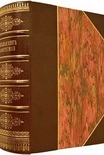Second Place by Rachel Cusk (best free e reader TXT) 📗

- Author: Rachel Cusk
Book online «Second Place by Rachel Cusk (best free e reader TXT) 📗». Author Rachel Cusk
‘It’s good to sit and watch this gentle world,’ L said. ‘We tire ourselves out so.’
Sitting there I began to tell him about the time all those years before when I had walked through a Paris morning in the sun and come upon rooms full of his paintings, and about how it had made me feel, to experience the sort of kinship those images had aroused in me, as though I had suddenly discovered my true origins. They had made me feel that I was not alone in what, until then, I had held as secret to myself. The admission of that secret there in his work, I said, had led to a change in my life’s orientation, because suddenly the secret felt stronger than the things that had kept it hidden. But this change of course had been much more effortful and violent than I could have foreseen, and it had looked at times as though I had entered on the path to disaster, and what I couldn’t understand was how the simple revelation of personal truth could lead to so much suffering and cruelty, when surely it was morally inoffensive to seek to live in a condition of truth.
I had learned since then, I said, that I was naive to expect that other people would merely allow me to change when those changes directly interfered with their own interests, and the revelation that my whole life, which appeared to have been built on love and freedom of choice, was in fact a facade that concealed the most craven selfishness was deeply shocking to me. There is no limit, I said, to what certain people will do to you if you offend them or take away what they want, and the fact that at one time you liked or chose to be among those people is one of the central mysteries and tragedies of life. Yet it is only a reflection, I said, of the very conditions and substances out of which your humanity is made – it is the attempt by selfishness and dishonesty to reproduce themselves in you and to continue to flourish in the world. You might as well go mad, I said, as try to resist that attempt.
‘Did you go mad?’ L asked.
‘I didn’t go mad,’ I said. ‘Though I suppose I still might, one day.’
I told him about how automatically I had believed – or rather, had assumed – that Justine’s father was a nice, or at least a decent man. How easy it is, Jeffers, to believe that of the men who conform to our idea of normality! I don’t think a woman is ever taken on trust in that way, unless it’s through the notion of her subservience. Yet within less than a month of my return from Paris and my announcement that I wanted to change the way things were, I had lost my home, my money, my friends, and even then I didn’t foresee the greater losses that were ahead of me. Justine was four years old at that time, and capable of expressing an opinion, and one day when she was at his house – as it now was – her father called me to say that she didn’t want me to collect her, as had been arranged. He even put her on the phone, so I could hear her say it myself. It was a year, Jeffers, before I got her back, and during that year I would often go and hide like a wraith at the gates of her school in the hope of catching a glimpse of her, until one day he happened to see me when he was coming out hand in hand with her, and he pointed at me and said to her:
‘There’s that terrible woman – run, Justine, run!’
And the two of them ran away down the street! That was when I tried to make myself die, but I couldn’t die – mothers can’t, really, unless it happens by accident. I discovered afterwards that he had been terribly neglectful of her all through this period, and often left her alone for hours on end, as though he had retained this part of me specifically so that he could demonstrate his cruelty and indifference toward it. This was my sorrow, Jeffers, and I gave it to L sitting there on the marsh, through fits of weeping. What I wanted L to understand was that this will of mine that he so objected to had survived numerous attempts to break it, and at this point could be credited with my own survival and that of my child. It had likewise brought disaster and dispossession on me – but better dispossession than to live where hatred walks around disguised as love! To lose my will would be to lose my hold on life – to go mad – and I was in no doubt that it could break one day of its own accord, I said to L, but it was my suspicion that a woman’s madness represents the final refuge of the male secret,





Comments (0)